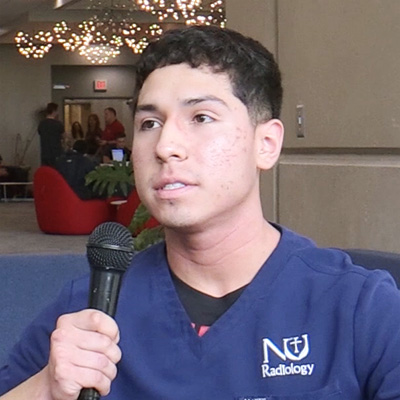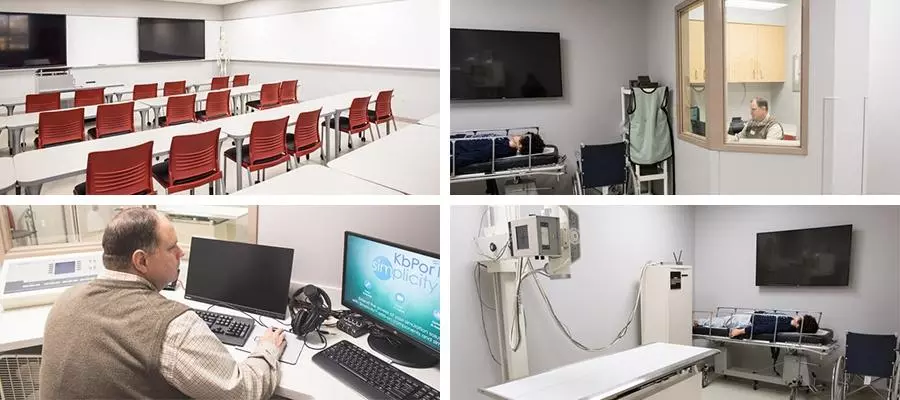The Radiologic Technology degree at Newman University empowers graduates by giving them the skills necessary to be a highly valued employee through providing high quality, compassionate patient care. Our graduates are transforming society through the skills obtained as well as by being service-oriented. Radiologic technologists are highly skilled medical professionals who assist the radiologist in the diagnosis of diseases using ionizing radiation.
| Provides opportunities to possibly get certified in other Radiology modalities. | |
| Provides a career that can be done for a lifetime. | |
| Promotes life long learning. |
Career Pathways
In Radiologic Technology
Newman University’s Radiologic Technology program provides you with the knowledge and relevant skills to set you on the path to a fulfilling career.
Some of our alumni in this program have found careers in:
- Diagnostic Radiology
- Computed Tomography (CT)
- Magnetic Resonance Imaging (MRI)
- Interventional Radiology
- Mammography
Some who have completed this program have chosen to continue studies in:
Programs in Radiologic Technology
Undergraduate Programs
Throughout the twenty-two month program, students are required to complete a minimum of eight hours of community service as well as participate in the radiologic technology program service-learning project. The program hosts a campus blood drive every Fall for the American Red Cross before their critical season of need.

The Radiologic Program is setup much like on the job training to learn the equipment. So by the time we're, we're graduating, we already have experience. We get to put that on our resumes that we've worked with different brands of instruments and machines out there. So it's just a real broad of the entire industry we get to see during this program.
Newman School of Healthcare Professions Student, Cutberto Pimentel-Rodriguez

Being in the Radiologic Technology program isn't only limited to just X-ray. You can go into CT, MRI, interventional, vascular, whatever the case may be. You're gonna learn every single day. It's not a career where you're stagnant.
Newman School of Healthcare Professions Student, Arturo Tena

